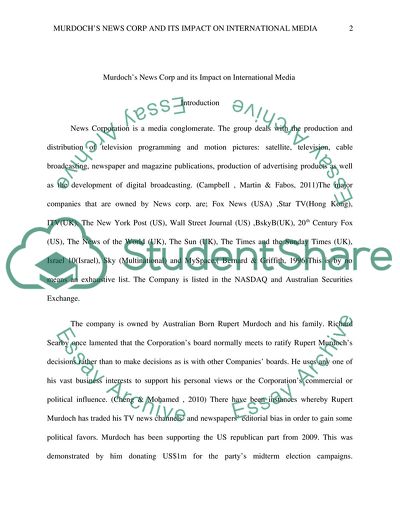Cite this document
(Murdoch's News Corp and Its Impacts on International Media Essay Example | Topics and Well Written Essays - 4250 words, n.d.)
Murdoch's News Corp and Its Impacts on International Media Essay Example | Topics and Well Written Essays - 4250 words. https://studentshare.org/journalism-communication/1820648-murdochs-new-corp-and-its-impacts-on-international-media
Murdoch's News Corp and Its Impacts on International Media Essay Example | Topics and Well Written Essays - 4250 words. https://studentshare.org/journalism-communication/1820648-murdochs-new-corp-and-its-impacts-on-international-media
(Murdoch'S News Corp and Its Impacts on International Media Essay Example | Topics and Well Written Essays - 4250 Words)
Murdoch'S News Corp and Its Impacts on International Media Essay Example | Topics and Well Written Essays - 4250 Words. https://studentshare.org/journalism-communication/1820648-murdochs-new-corp-and-its-impacts-on-international-media.
Murdoch'S News Corp and Its Impacts on International Media Essay Example | Topics and Well Written Essays - 4250 Words. https://studentshare.org/journalism-communication/1820648-murdochs-new-corp-and-its-impacts-on-international-media.
“Murdoch'S News Corp and Its Impacts on International Media Essay Example | Topics and Well Written Essays - 4250 Words”. https://studentshare.org/journalism-communication/1820648-murdochs-new-corp-and-its-impacts-on-international-media.


